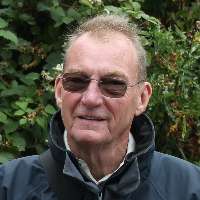
Emeritus Professor Mark Duffield
B.A.(Sheff.), Ph.D.(Birm.)
Expertise
I work on the political economy of permanent war. Indeed, its necessity under present conditions. At the moment, I am transcribing and editing my Sudan field diary I kept between December 1973 and February 1975.
Current positions
Emeritus Professor
School of Sociology, Politics and International Studies
Contact
Press and media
Many of our academics speak to the media as experts in their field of research. If you are a journalist, please contact the University’s Media and PR Team:
Biography
Mark Duffield is Professor Emeritus and former Director of the Global Insecurities Centre, University of Bristol, and an Honorary Professor at the Humanitarian and Conflict Response Institute, University of Manchester. Duffield has held fellowships, teaching posts, chairs and visiting positions at the universities of Khartoum, Sussex, Aston, Birmingham, Leeds, Lancaster, Bristol and Copenhagen. He recently completed eight years as a member of the Scientific Board of the Flemish Peace Institute, Brussels and is a Fellow of the Rift Valley Institute, Nairobi.
Duffield has a PhD in anthropology which was completed among Sudan's Hausa speaking communities (so-called Fellata) during the mid 1970s. His early academic work focused on labour migration, culminating in a study of the Indian shop-floor movement in the UK's Black Country iron foundries. Outside of academia, during the 1980s, he was Oxfam’s Country Representative in Sudan. Duffield has subsequently advised a number of governments, multilateral organisations, UN agencies and NGOs.
His eight books include Global Governance and the New Wars: The Merging of Development and Security (2001, reissued in 2014 in Zed Books prestigious Critique Influence Change series) and Development, Security and Unending War: Governing the World of People (2007, reissued 2013). His latest book, Post-Humanitarianism: Governing Precarity in the Digital World (Polity, 2019), is an examination of the datafication of international aid and our growing remoteness from the world.
Filling twenty-two notebooks, Duffield is presently transcribing and editing the field diary he kept in Sudan between December 1973 and February 1974. Working among Sudan’s Hausa speaking communities, and fluent in Hausa, the diary is a unique ethnographic document that casts an historic light on Sudan’s current tragedy.